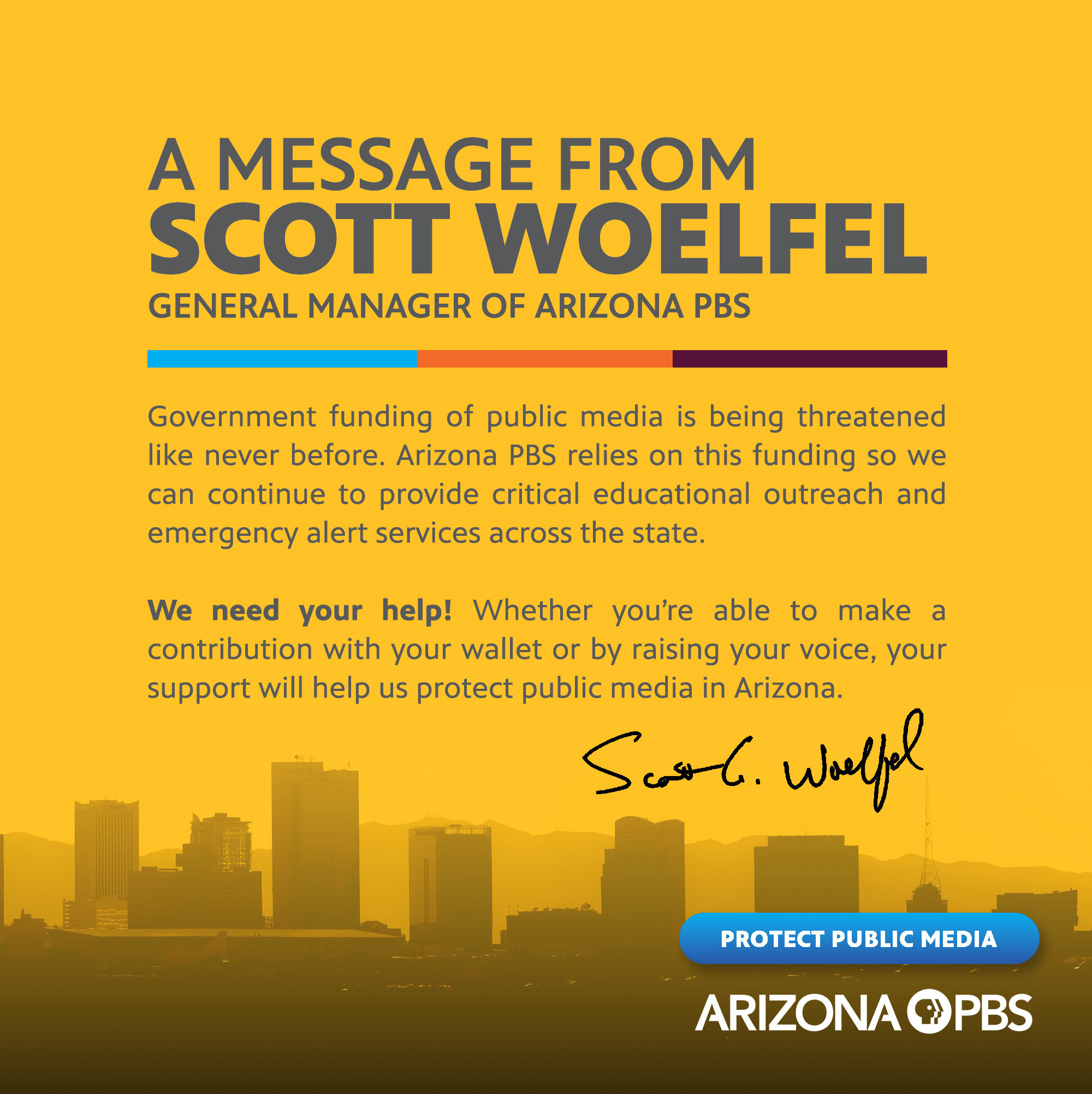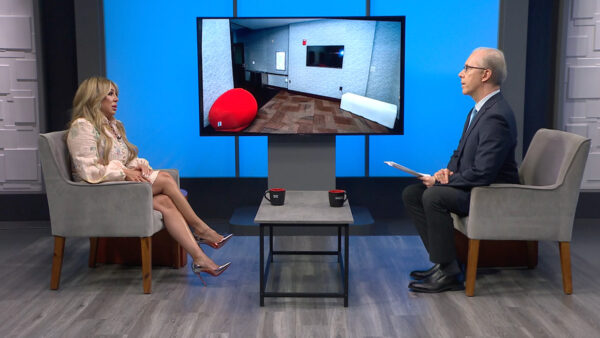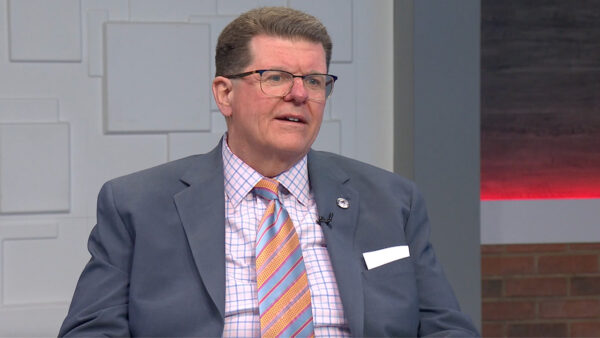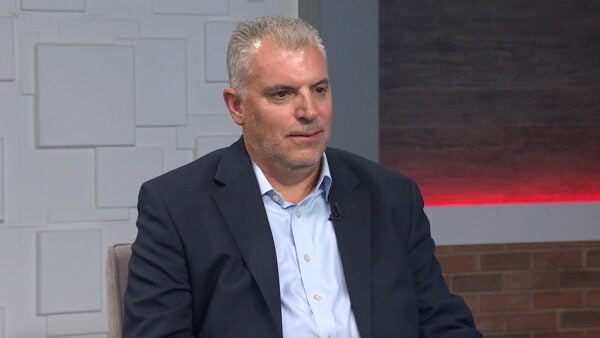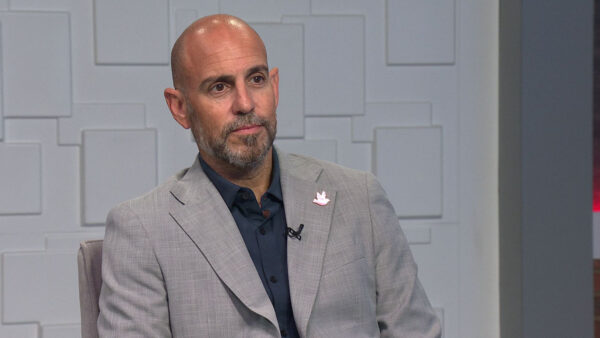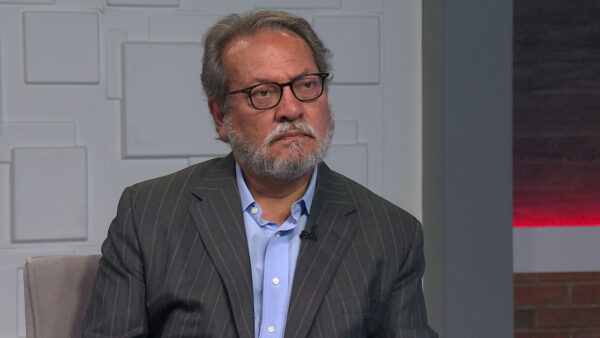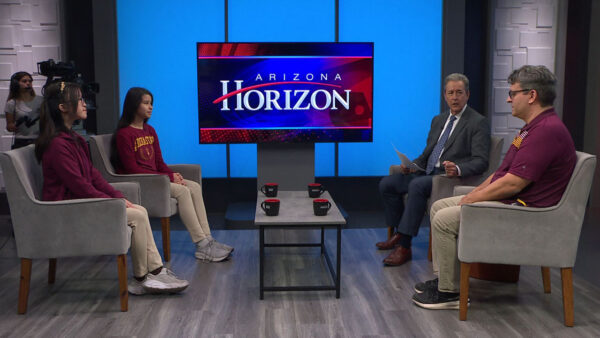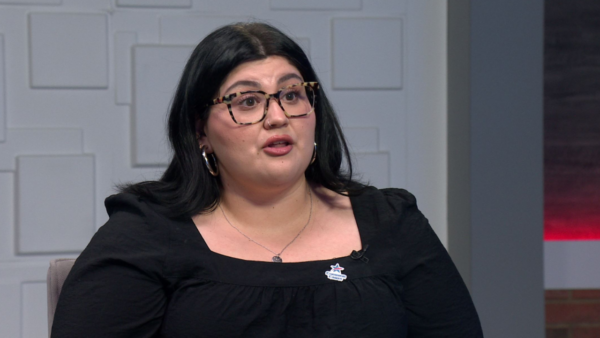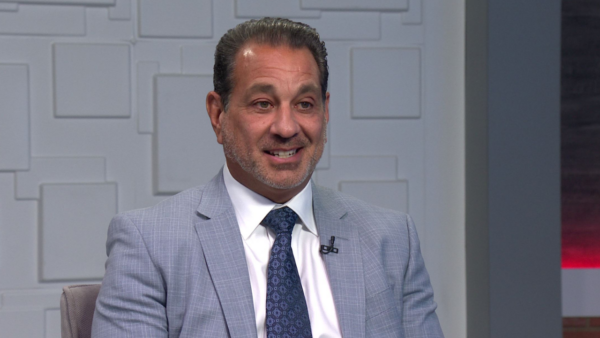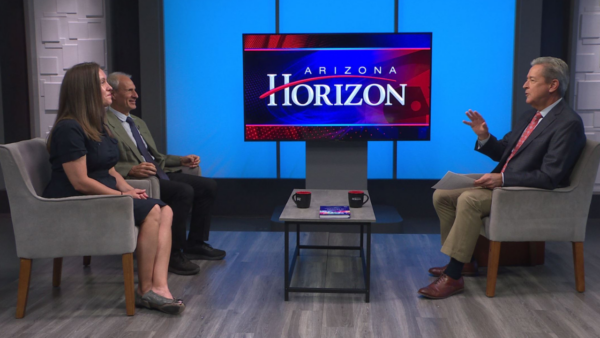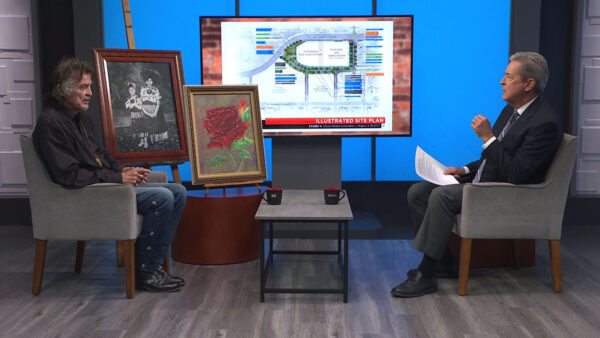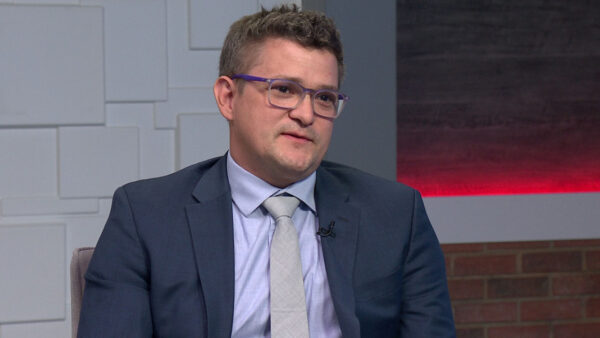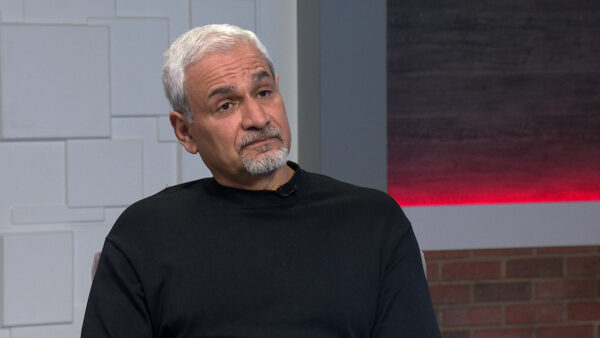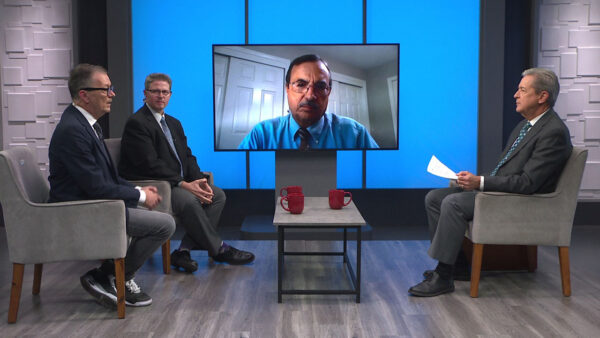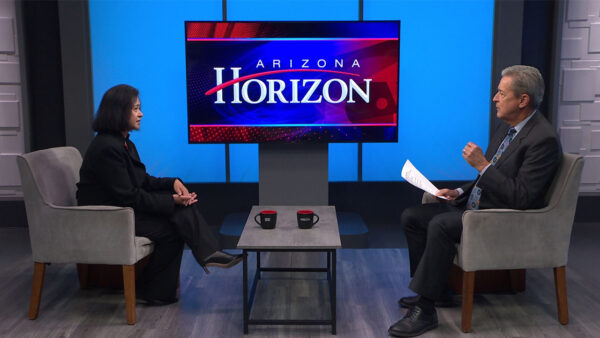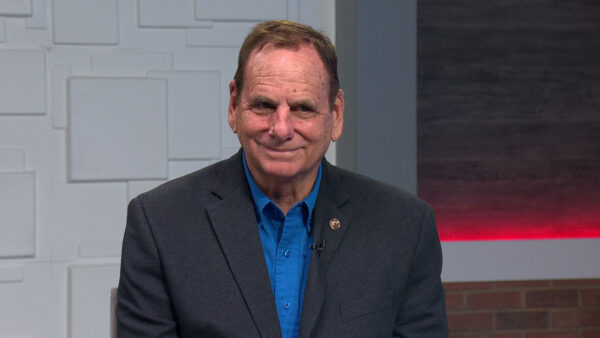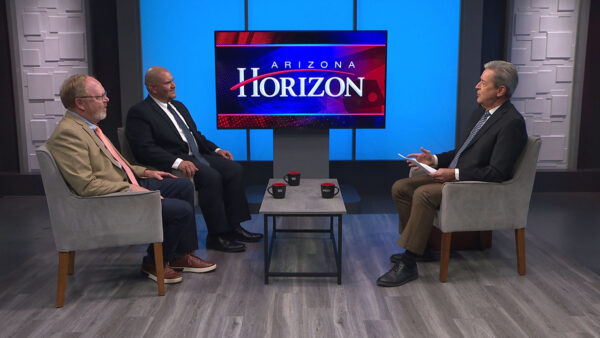The State Land Department sells and leases State Trust Lands to raise money for public schools. Now, a new state law allows the Department to keep up to ten percent of those earnings to manage those lands. That’s illegal, according to the Arizona Center for Law in the Public Interest which is asking the Attorney General to stop those payments from continuing. Hear from former State Land Commissioner Mark Winkleman who helped establish the law and Arizona Education Association President John Wright who is supporting the legal challenge.
Richard Ruelas: The State Land Department is required to sell and lease state trust lands to raise money for public schools. But a new state law allows the department to keep up to 10% of its earnings to manage those lands. That's illegal according to the center for law in the public interest, which is asking the state attorney general to intervene. Last month on "Horizon" we asked State Land Commissioner Maria Baier if the department's new self-funding law is legal.
Maria Baier: Legislative council, which is the body that advises the legislature in terms of legality much of certain -- of laws, has opined that it is, and that is how the statute that authorized our self-funding this year was passed. It was considered, it was analyzed, and they determined that it was legal. And so we do -- we do get to take a small share of the proceeds that are generated through sails of state trust land to fund the department.
Richard Ruelas: Joining me to talk about the land department's self-funding law is Mark Winkleman, former state land commissioner, who was instrumental in getting the law passed. And John Wright, president of the Arizona Education Association, which is supporting the legal challenge to the law. Thank you both for joining us. What about the history of the law? Why did the state land trust want this legislation passed?
Mark Winkleman: Agencies in these difficult budget times are looking for whatever means they have to support their operations. And the land department has got a long history of being under funded by the legislature. So you have seen the massive cuts the state has undertaken. It makes it difficult to carry out the missions of all the agencies, not just the land department. This is an idea that's been out there as part of overall trust land reform for the last many years, and so we figured out a way that in the interim that perhaps this could be used to more adequately fund -- I don't want to use the word "adequately" because that's not true, but maybe to minimize or reduce some of the cuts the agency was otherwise going to suffer being dependent on the general fund.
Richard Ruelas: Would the -- what would the money go for?
Mark Winkleman: For the budget, to keep us in a revenue-producing mode. The land department's different than most state agencies, because we don't regulate, we don't license, and I say we as if I'm still the land commissioner.
Richard Ruelas: Tough to get that out of the system.
Mark Winkleman: Forgive me. Anyway, the land department's got a simple mission -- that is to maximize revenues. In other words, make as much money as possible for the beneficiary and education, particularly q-12 is the primary beneficiary of what the land department does. So it's a revenue-producing agency, and the most important activities we do result in revenues for education.
Richard Ruelas: And with these additional funds being able to I guess -- we're talking about things like retaining staff, eventually it would result in more money for -- in the trust?
Mark Winkleman: Absolutely. This is -- you need people to make money. And it's difficult. Real estate, I think some people think it's just a simple process. But for land department that's got massive stretches of land that tend to be unentitled, to create the value so you can get to the point of having some of the auctions we did where we made a huge amount of money, is very time and labor intensive process. So it takes staff, it takes resources to do mapping, studies, the ability to prior professionals to help, sometimes it's zoning, they -- unfortunately it's quite an expensive proposition, but the payoff is hundreds of millions of dollars.
Richard Ruelas: Now for an opposing view. John Wright. Why is it a bad idea to take 10% of the trust funds and sort of reinvest it into that fund?
John Wright: Well, reinvesting proceeds into the state land department is a good idea. The bad idea is this particular bill, house bill 2014, and to do this through statutory means. What mark is describing is 100% accurate. And the Arizona education association and I in particular as well have been working with mark in his role as land commissioner over the past six years to accomplish much of what he's talking about. Representing the beneficiaries of this enormous asset, we want to see that land, that asset, managed as well as possible, to have the value increased as greatly as possible, and to provide that revenue stream into our public schools to meet the needs of students.
Richard Ruelas: It sounds like there's a "but" coming.
John Wright: There is. This is all constitutionally established. The hundreds of millions of acres of state trust lands set aside at statehood were set aside by the enabling act. And that says very specifically who the beneficiaries of this land are, and that the proceeds from the sale or lease of these lands go to those beneficiaries. Furthermore, the constitution says very specifically that the legislature does not have the authority to appropriate or divert funds that have been set aside by this particular entity, the state land trust, and that any sort of changes to the use of those funds must be done through a constitutional change. And then finally, the voters approved in the year 2002 proposition 300, which was a voter-approval of previously adopted statutes that said all of the additional monies from these state trust land and the proceeds from their sales go specifically not just to K-12 public education, but into the classroom site fund to pay for salaries, programs, and meet student needs directly. I believe we need to find a way for the state trust land to help become a self-funding mechanism and help the land department better manage, because this is the asset belonging to the beneficiaries. And we have worked for a constitutional change, which unfortunately failed at the ballot. But just taking 10% and diverting it in a very unspecified manner to the land department is not in the interest of the beneficiaries, and it sets a bad precedent, because if this legislature can take 10% for this purpose, and that's shown to be ok, then another 10% can be diverted some place else, another 15% could be diverted to fill this budget gap. So the urgent circumstances we're in do not warrant an act that we do believe is in violation of the constitution. Let's do it the right way.
Richard Ruelas: So the theory of what the money would be going for is fine. It's the mechanism. If it had been passed -- I guess was this something that was going to be -- there's been, what, two or three in the last reelection, state land trust? Reform issues. If any of those had passed, has this been in a couple of those?
John Wright: A self-funding component has been in each of the ones that we have worked on advancing and passing, yes.
Richard Ruelas: Not necessarily the 10% number? Is that --
John Wright: I don't believe --
Mark Winkleman: Maybe different mechanisms. I think in the past, there was comprehensive trust land reform, the idea was you were going to have to go to the voters to amend the constitution, amend the enabling act. So if you're going to do that, maybe you look at things differently. As I went through and urged the legislature to pass this bill this past spring, I went to them and said, there may a better long-term solution. And if there's comprehensive trust land reform at this point, you may want to change. This but here's a way to better fund the land department, that is legally, with all due respect, legally permissible, and we'll allow them to continue to produce revenue. And if you don't like it, or it doesn't work, you can amend the law next year. If you have a package you want to take to the voters, you can supersede it. This is not a permanent thing.
Richard Ruelas: How did you arrive at the 10% number? Was that in the previous thoughts of this?
Mark Winkleman: Well, there's been so many versions, it's probably been in something. The idea was to take enough that would give the department a chance to have an adequate budget, and yet -- and put a cap on it, so there wasn't the fear, they're just going to take all the money and build some giant bureaucracy. 10% is a relatively small percentage. Look that the legally, it's a trust. This land is held in a legal trust. And quite a few years ago I used to practice law, and dealt with trusts. Every trust I dealt with paid their own expenses out of what they earned. Which is the same concept.
Richard Ruelas: It's money that would even if it's now not going to education, would go into the trust and the thought is eventually end up multiplying and going to education, but you're saying there's a fear of --
John Wright: That's the thought. But that's not what the language says. As I mentioned before, we have been supportive of the idea of a self-funding mechanism in the past, through constitutional change. But we've been very specific about what that funding would provide for. Our language said the funding could only be spent to enhance the value of the land through management practices. The language of the statute is fairly vague, and talks in general about trust management fund to help manage the land. The land department does pay a lot of land management outside of enhancing value of trust lands for the beneficiaries. Anything from fire suppression, to rangeland management. So what we want to be sure is that it's used for very specific value enhancement purposes, and we want some accountability.
Richard Ruelas: It sounds like you want to guarantee the money that's going in will eventually find its way back.
John Wright: And benefit the beneficiaries, and the commissioner will be accountable to the beneficiaries as to how that money is spent.
Richard Ruelas: Is there a trust issue there? Is there a danger this money gets sucked into the bureaucracy and don't recycle its way back or doesn't grow itself?
Mark Winkleman: We're going through the same appropriation process that we've done for a hundred years. So you have to come every year and get the governor to allow you to take a budget forward. Do you through the legislature, they go through line by line and tear it apart. So it's not as if the land department gets to grab a bunch of money and do whatever they want. It's subject to the same difficult appropriation that it does every year and historically has always done. The difference is we're bringing our own money. So maybe in the past, the tendency these days particularly is, you've got to cut. The governor just recently asked every agency to take another 15% cut. Well, they're trying to save the money. Here's a way to bring money that you can say, let's think about what makes business sense. Not, ok, we've got a general fund and equitably we'll cut all agencies, because we're not like all agencies.
Richard Ruelas: I guess lastly -- I imagine you've talked to Tim Hogan and had this worry -- is there a danger that lawsuits are expensive. Is there a danger of spending more to fight this than is worth in getting money -- getting this overturned?
John Wright: Well, the cost of the lawsuit from our end in partnership with Tim and the center for the law in the public interest is not going to be state money. So it's a decision we'll make about what kind of investment do we believe is important to support the long-term interests of the beneficiaries. But based on this particular law, house bill 2014, the lush recently took just under $10 million of the proceeds meant to benefit the beneficiaries, meant to support the beneficiary and transfer them into this fund. $10 million that would have been in the permanent fund creating earnings and additional money to the classroom. If that money comes out of the fund into the classroom, we want some guarantee about its use and value.
Mark Winkleman: Just because this is a legal argument, it may end up in court, I don't want to make it sound like we just came up with some creative plan here. He's right. It has to be in consistent with the constitution enabling act. We came into the union at the same time as New Mexico. They have their own land department. It's all throughout their history, they have funded their land department the same way, and the constitution has to be consistent with that. There was a case in 1926 where that was challenged, and upheld as permissible. We had the lawyers look at it as Commissioner Baier pointed out. The legislature's legal team said it was permissible. It will get sorted out if it end up in the courtroom, but please don't have the idea the land department or somebody went out and said, let's be sneaky --
Richard Ruelas: I guess right now -- right now it's in the hands of another lawyer, Terry Goddard, who will look at and it render a decision, and then we'll see what happens. From there we'll have you both back to figure it out from there. Thank you both for joining us.
Mark Winkleman:Former State Land Commissioner;
John Wright:Arizona Education Association President;
